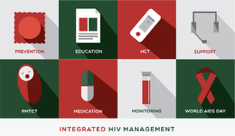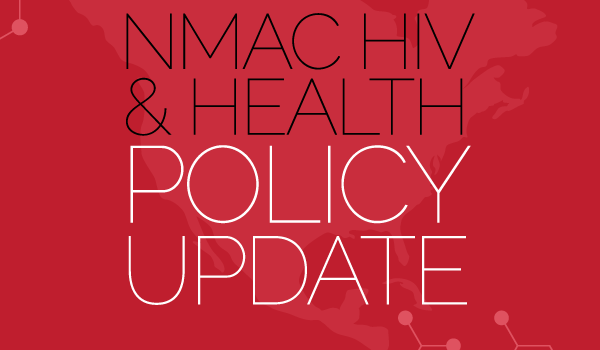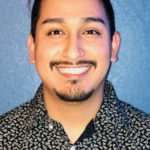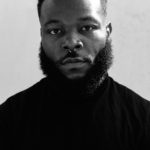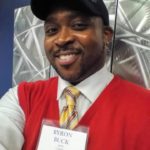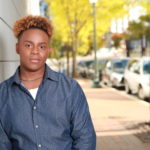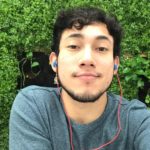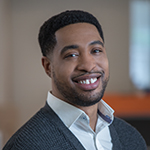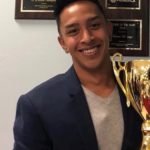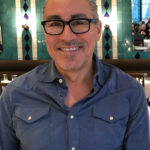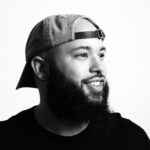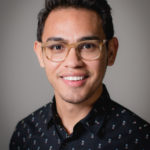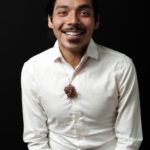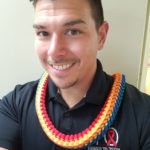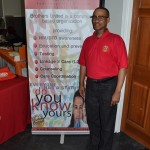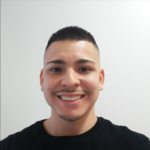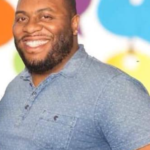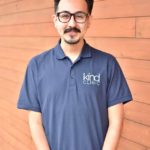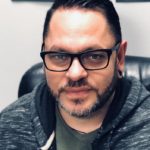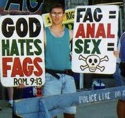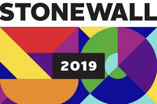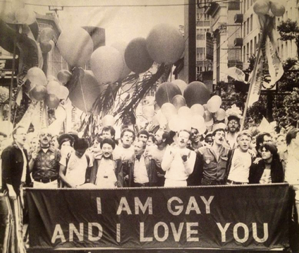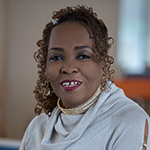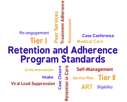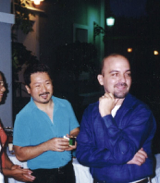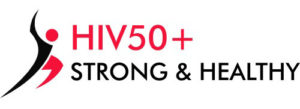 Each year, NMAC awards mini grants to members of the 50+ Strong & Healthy Program to plan and implement HIV education programming or social activities for long term HIV survivors. This year’s mini grant recipients included:
Each year, NMAC awards mini grants to members of the 50+ Strong & Healthy Program to plan and implement HIV education programming or social activities for long term HIV survivors. This year’s mini grant recipients included:
Bryan Jones and Michelle Jackson-Rollins, Garden Valley Neighborhood House, Cleveland, OH
Sankofa Self-Advocacy Retreat- Brought those aging with HIV together with other generations of those living with HIV to gain education and self-care while learning to interact on a personal and professional level.
PLWHA over 50 were paired with a younger PLWHA and throughout the retreat participants attended workshops, social activities, and told their personal stories. The retreat was held from April 12-14, 2019 at the Stanford House in the Cuyahoga Valley in Peninsula, Ohio.
Christine Kapiioho, Maui AIDS Foundation, Waiuku, HI
“Healthy Living for 50+ HIV Individuals” was a half day event focusing on two topics (Nutritional supplements and acupuncture). The event was held on March 30, 2019 at the Maui AIDS Foundation in Wailuku, HI.
Debra Parmer, Northeast Ohio African American Health Network, Arkron, OH
Celebration of Life Workshop and Evening Dinner was a one-day, eight-hour workshop held for people aging with HIV/AIDS. The workshop was held on Saturday, February 16 in Akron, Ohio. Participants learned information concerning advances in HIV treatment, avoiding the development of co-morbidities such as diabetes, cholesterol and high blood pressure by ensuring good dietary and physical fitness habits are practiced as a means of prevention. Participants also enjoyed an evening of fun activities including line dancing, exercise and soft tissue massages.
Janice Shirley, Carolina Care Partnership, Charlotte, NC
“Thriving at 50+” brought together different agencies to empower individuals living with HIV and over the age of 50. The program held seven workshops over the course of six months focused on topics such as medication management, exercise, nutrition, mental health and finances. The workshops were held at the Carolina Care Partnership in Charlotte, NC.
Jared Hafen, Utah AIDS Foundation, Salt Lake City, UT
Positive Force: The Reunion is a social support group for people over 50 years old who are living with HIV. This event was held on Saturday, February 23, 2019 in downtown Salt Lake City, UT. Participants mingled with their peers and learned coping strategies around HIV. Positive Force was established in 2016 as a social group for people living with HIV over 50 years old. It is an active group with over 80 members.
Kneeshe Parkinson, Positive Women’s Network (PWN-USA), St. Louis, MO
IMPACT Party: Strong and Healthy included interactive workshop sessions to enhance, educate and empower the lives of those HIV+ 50 diagnosed with HIV/AIDS to eradicate STIGMA and improve quality of life with a meaningful impact. Workshops focused on “living your best life” and social activities such as painting and a head wrapping demonstration. The workshops were held from January to April 2019 in Saint Louis, MO.
Michele Princeton, AIDS Taskforce of Greater Cleveland, Cleveland, OH
50+ Positive Change Two-Day Retreat provided participants insight for living and surviving with HIV and related challenges. It also provided opportunities to connect socially and emotionally with others in similar situations. The retreat offered structured workshops, panel discussions, dancing and lunch and learn activities. The retreat was held on March 15-16, 2019 in Cleveland, Ohio.
Nancy Shearer, Special Service for Groups, Inc./ APAIT, Los Angeles, CA
Spring Social: Bringing Older Adults People Living with HIV (PLWH) Together was a multi-component program focusing on Addressing Social Isolation among adults ages 50 and over living with HIV, identifying as heterosexual. During this event, individuals were able to share their stories, learn best practices for their health and well-being and build their social network. The Spring Social was held on March 23, 2019 in Los Angeles, CA.
Robert Cornelius, Cempa Community Care (Chattanooga CARES), Chattangooga, TN
The Survivors Network program connected those individuals living with HIV over the age of 50 to education and resources needed to learn valuable life skills. The program had five sessions held from January to May 2019 filled with sharing stories, how to address stress and isolation, and learning about HIV drug resistance.
Patricia Kelly, Carla Rose Foundation for a Family Affair, Orangeburg, SC
Raising our Awareness and Representation (ROAR) was a two-day retreat aimed at bringing together women living with HIV. Women from South Carolina and Georgia attended the retreat from February 22-24, 2019. Session topics included how to address grief and loss, living wills and power of attorney, and mental health. The retreat also included fun social events such lunch socials and open discussions.
Angel Luis-Hernandez, Ministerio en Jehova Seran Provistos, Arecibo, PR
Foro Communitario Lo Mejor de Nosotros: 50+ Positivos, Fuertos y Saludables facilitated a working experience for two scholars to be mentored in event coordination skills for developing a community forum on HIV and aging. The scholars were mentored by the organization and the event was held on April 5, 2019 at a nearby restaurant. It was a successful three-hour event where the social, clinical and social and psychological aspects of HIV and aging were discussed.
Teresa Sullivan, Philadelphia FIGHT, Philadelphia, PA
We are Stronger Together Building an HIV 50+ Alliance is a series of workshops and educational events created for the HIV 50+ population. These workshops were held from January to April 2019 in Philadelphia, PA. The attendees were recruited from the pilot TEACH (Treatment Education Activists Combating HIV) Alumni group. Workshops included social events (such as self-love and karaoke), mental health workshops, and a health fair.
Michael G. Smith, New Mexico Coalition to End Homelessness, Santa Fe, NM
Phx Rising: 2.0: Work, Financial Stability, and Aging with HIV/AIDS created a website to address issues related to Work, Financial Stability, and Aging with HIV/AIDS. Michael Smith worked with a volunteer to do service provider focus groups and analysis to improve the website. A report was submitted with recommendations for re-design of the site.
Miguel Delgado-Ramos, COSSMA, Inc., Cidra, PR
“VIHVIENDO Fuerte y Saludable”/ “Living Strong and Healthy” was held on May 3, 2019 at the Morivivi Hall of the Four Points Hotel in Puerto Rico. The event had 4 sessions focused on Emotional Health, Physical Health, Finance and process of creating a support group. The event was very successful and created an interest to develop a support group with participants who attended.
Esther Ross, Circle of Friends Task Force, NC
The LAMPS (Leaders, Advocating, Mentoring, other leaders for Personal Growth and Support) Project educated 5 persons of color living with HIV (POCLHI) using the Building Leaders of Color (BLOC) curriculum. Trainings were held from February to May 2019 and included BLOC modules on the Ryan White program and leadership, review of GIPA/MIPA, and transformational leadership.
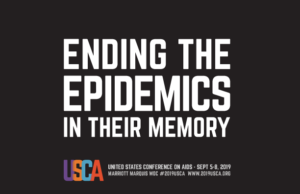 This year the United States Conference on AIDS received 1,112 scholarship requests and awarded 216 scholarships. Unfortunately, the vast majority of people were turned down. People are upset, and I am sorry. When you look at the demographics of who got scholarships, USCA prioritized People Living with HIV and People of Color, the communities hardest hit by HIV. Fifty scholarships were set aside for people Over 50 Living with HIV, 30 for youth, 15 for People on PrEP, 18 for Social Media Fellows and the balance in the general pool. The process was set up through Events Rebels. Our reviewers go online and blindly review the applications without seeing the applicants’ names. Reviewers were people who work on the frontlines of the epidemic and are part of the Constituent Advisory Panels (CAPs).
This year the United States Conference on AIDS received 1,112 scholarship requests and awarded 216 scholarships. Unfortunately, the vast majority of people were turned down. People are upset, and I am sorry. When you look at the demographics of who got scholarships, USCA prioritized People Living with HIV and People of Color, the communities hardest hit by HIV. Fifty scholarships were set aside for people Over 50 Living with HIV, 30 for youth, 15 for People on PrEP, 18 for Social Media Fellows and the balance in the general pool. The process was set up through Events Rebels. Our reviewers go online and blindly review the applications without seeing the applicants’ names. Reviewers were people who work on the frontlines of the epidemic and are part of the Constituent Advisory Panels (CAPs).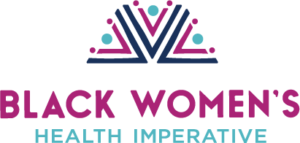 In addition to these partners, the Black Women’s Health Imperative is bringing 200 African American women to USCA. We are very thankful to our colleagues for their support. NMAC believes it is important to have diverse organizations selecting scholarship recipients from their constituents. The goal is for USCA to reflect the demographics of the epidemic.
In addition to these partners, the Black Women’s Health Imperative is bringing 200 African American women to USCA. We are very thankful to our colleagues for their support. NMAC believes it is important to have diverse organizations selecting scholarship recipients from their constituents. The goal is for USCA to reflect the demographics of the epidemic. NMAC also heard concerns about the same people getting scholarships. We did a look back and saw around 30% of the scholarships went to people who received one previously. That means 70% went to new leaders. Most of the repeats happened for the Youth Scholars. This is strategic because the agency believes it takes more than one year to build leaders. The agency also gives a limited number of repeat scholarships in our Over 50 Living with HIV initiative. We try to bring previous recipients back to help run the program onsite and to act as mentors. Some people do get scholarships every year, but they aren’t necessarily from NMAC. Thankfully, we have partners and donors who provide scholarships independent of NMAC. Many attendees are sponsored by community-based organizations and/or the health department.
NMAC also heard concerns about the same people getting scholarships. We did a look back and saw around 30% of the scholarships went to people who received one previously. That means 70% went to new leaders. Most of the repeats happened for the Youth Scholars. This is strategic because the agency believes it takes more than one year to build leaders. The agency also gives a limited number of repeat scholarships in our Over 50 Living with HIV initiative. We try to bring previous recipients back to help run the program onsite and to act as mentors. Some people do get scholarships every year, but they aren’t necessarily from NMAC. Thankfully, we have partners and donors who provide scholarships independent of NMAC. Many attendees are sponsored by community-based organizations and/or the health department.



